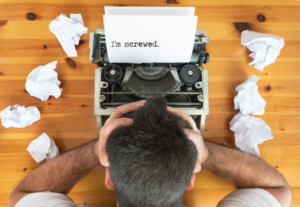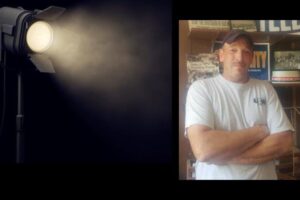
The newsroom of the city’s underdog daily newspaper in the 1980s was easily the most exciting place to work in the world, just as long as money and a clean, respectable working environment weren’t high on your list of priorities.
Newsrooms, by and large, were intentionally awful, rundown places aimed at crushing any optimism and hope. A staff full of optimism and hope simply wasn’t capable of dishing out the doom and gloom their readers so richly deserved.
The owners of these newspapers operated on a fat, 15 percent profit margin, so it was vital everything was done on the cheap, and to make sure it was crystal clear where the editorial staff stood on the pecking order of the place.
The editorial tribe was constantly reminded that it wasn’t bringing in a single dime to the newspaper — like circulation and advertising — just wasting valuable resources to generate news for the newspaper.
This could be discouraging, but we pushed on because people had a right to know what was going on inside their communities. Plus, the thought of doing any real work was simply out of the question.
The place where the community’s news was gathered was generally jammed into an ugly, giant building in the absolute worst part of town, and laid out like a K-Mart show floor with ominously low ceilings, gruesome lighting and absolutely no windows. This ensured there would be only limited contact with the outside world where all the news was happening.
Reporters and photographers were the only ones who dared interact with the public, and were held in great disregard in the newsroom because they only made hard work for the editors.
Newsrooms were stuffed with mismatched desks and chairs, and creaky cubicles and partitions that sat atop stale, greenish/blueish carpeting that had started out beige when it was glued to the concrete floor in 1952.
There was always a place in every newsroom where an editor had died on the spot of a heart attack while chopping up some poor reporter’s copy on deadline. Nobody would remember any particulars of the guy, except that he had always been an editor, could recite AP Style on command, and had no family anybody was aware of, except for maybe a cat. Absolutely nobody was surprised he went out the way he did, which made him a very admired and noble figure.
There were worse ways to die.
Hulking computer monitors and ominous, gray typewriters grew out of the desks in these places, and were swamped by telephones, papers, folders, pencils, pica poles, rolodexes, sticky notes, tape, empty Coke cans, rancid coffee cups, and the odd, dusty picture of a family member who had been ignored ever since their long-dead loved one had been bitten by the journalism bug.
There was the scent of stale cigarettes and heavy tension in the air. Clocks lurked. Deadlines were everywhere.
The inhabitants of these awful places were necessarily self-important know-it-alls, lousy dressers, and almost as smart they supposed themselves to be. They cursed about everything, and hated just about everyone, especially the sellout, rotten, happy fuckers who had found jobs that paid a lot of money.
They wore their cynicism on both sleeves, could dish it out, and weren’t crazy about taking any of it. They could hang a phone on their ear and type 132 words a minute with two fingers, while interrogating some unsuspecting news source.
A newspaperperson always spelled a source’s name correctly, because they asked to make sure they had it right 14 times over the course of an interview.
Getting things right as a journalist was what it was all about. But when you occasionally got it wrong, at least you had spelled everybody’s name correctly.
I basically spent the first month of my daily newspaper experience in Naples, Florida, in complete and utter terror. I wasn’t sure I had what it took to excel in such a high-performing, bleak environment.
Things got as bad as they could get when a few weeks into the job, I blew through deadline with a sports story that should have written itself.
I was reminded by my editor that there was a reason the word “dead” was in deadline, and that if it happened again, I’d most likely be on life-support.
I got that, but what really tore me up inside as I made the pitch-black, 50-minute drive through the Everglades and back to our home in Fort Myers that night, was what I overheard one editor say to another as I walked out the door.
“Kid just flat choked.”
I would have rather died at my desk than choke any day …





